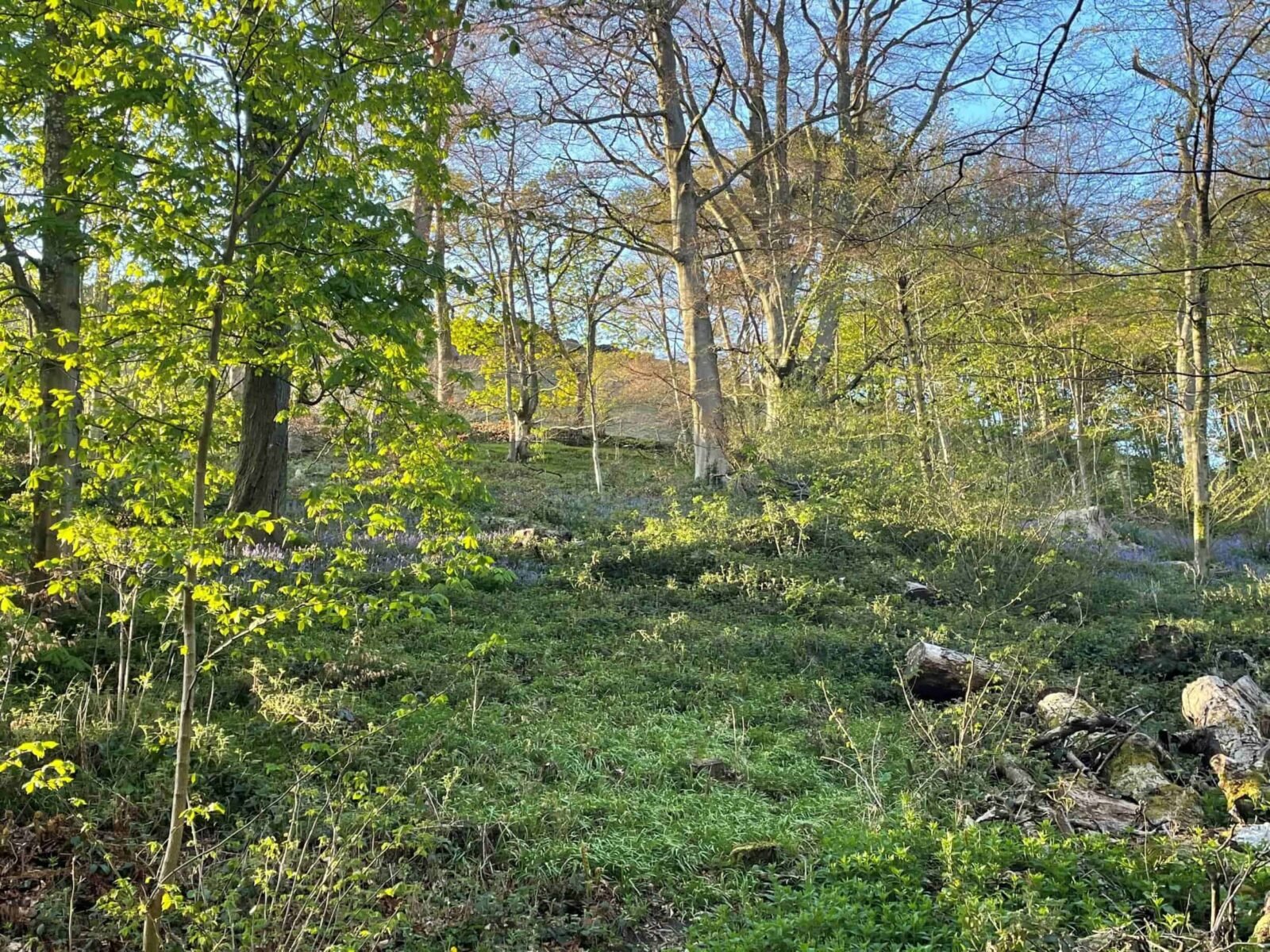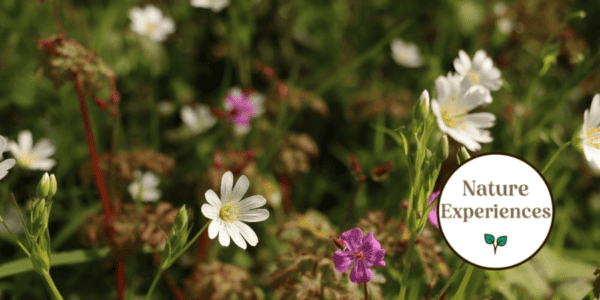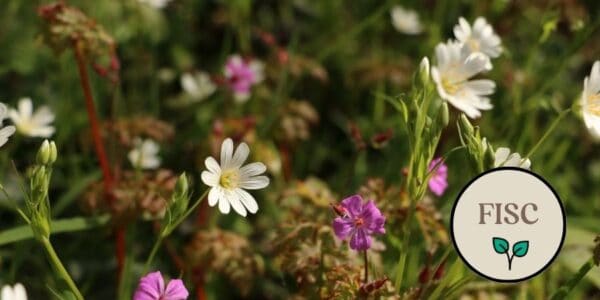This beginner to intermediate course is designed to give you a broad introduction to woodland habitats in Britain. You will learn to identify key woodland indicator species, as well as get to know the characteristics of different woodland habitat types and how to recognise when woodlands are healthy and thriving.
This course will include:
- An introduction to British woodland habitats and their characteristics.
- An introduction to identifying healthy woodlands, including awareness of invasive species, grazing pressures, and evidence of pests and diseases.
- Practical experience identifying key woodland indicator species in the field with an expert tutor.
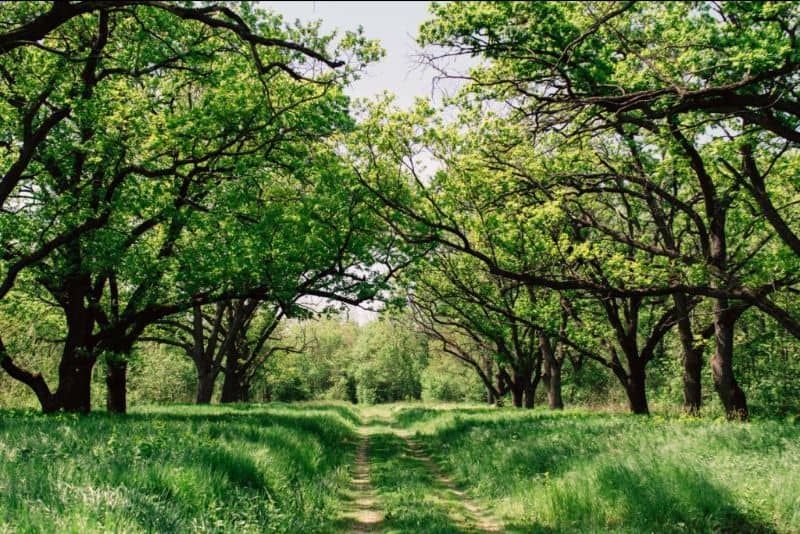
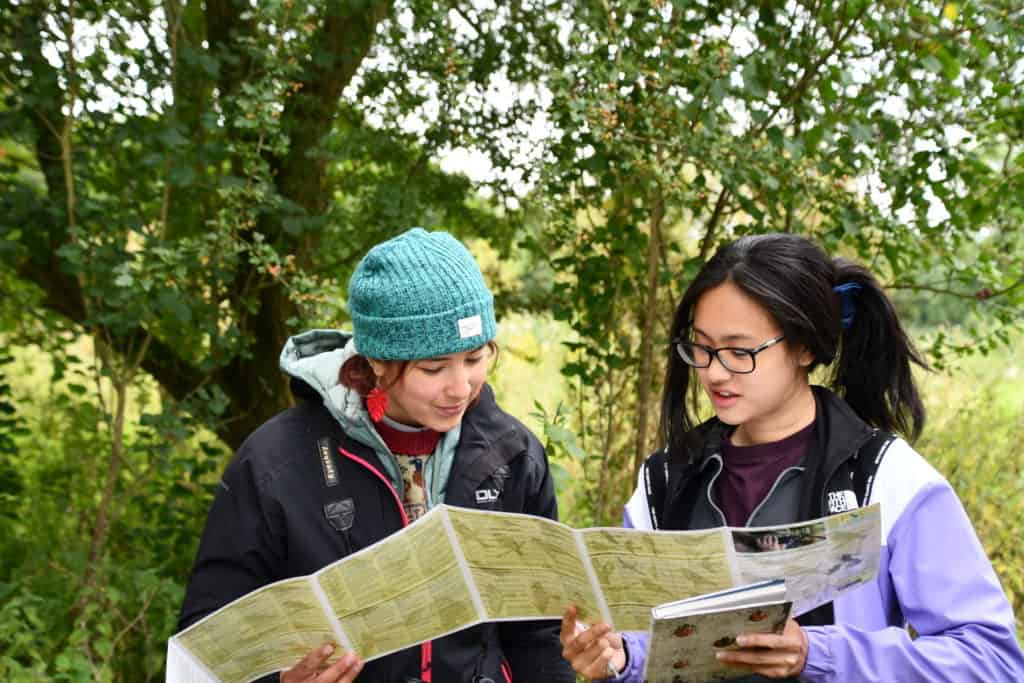
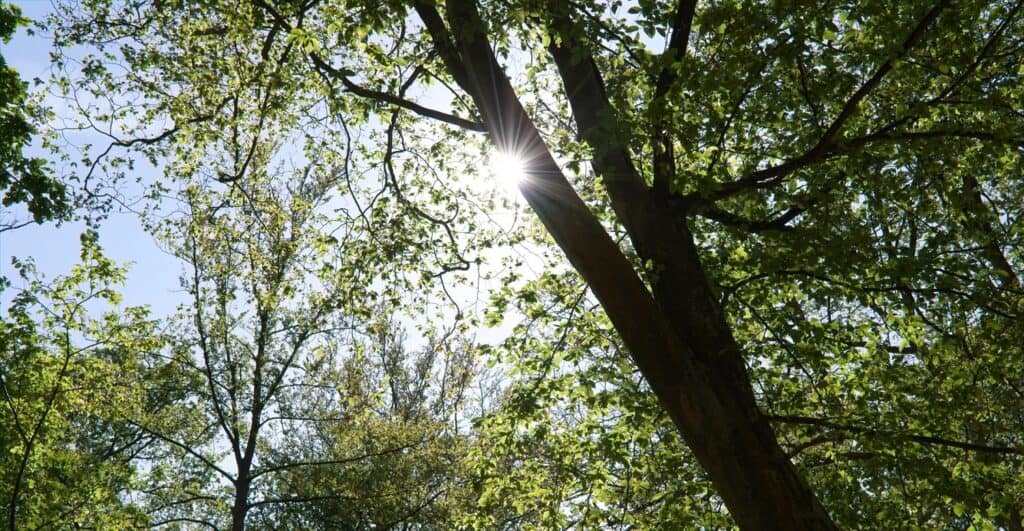
Read More
Learners will leave this course equipped with an understanding of the key features of woodland habitats including woodland structure and the underpinning botanical skills to begin identifying commonly encountered tree species and woodland flora, invasive species, pests and diseases.
By the end of this course you will be able to:
- Define a range of woodland habitats.
- Identify key features and species of common woodland plants indicative of different woodland habitats.
- Identify indicator species and describe what they can tell us about a woodland environment.
Who should attend?– Nature enthusiasts, students, rangers, early career consultants, ecologists, anyone looking after woodlands, and those wishing to brush up their skills to help them complete the Forestry Commission’s Woodland Condition Assessment.
Knowledge Level– Beginner to intermediate. Level descriptors can be found on the following web-page: Framework and Course Level Descriptors.
Prior Knowledge– No existing knowledge or experience is needed for this course, just a willingness to explore and learn. Some existing knowledge of botany would be useful, but not essential.
PLEASE NOTE: There is no accommodation or meal facilities provided with this course. Refreshments (tea and coffee) will be available. If we are unable to reach viable numbers for this course, we will inform you of the course cancellation 4-5 weeks prior to the course run. We would recommend when purchasing accommodation and/or travel you should take out your own insurance.
Bookings will close if course capacity is reached.
Please email [email protected] if you have any questions.
About the Tutor
Morag Boyd
Morag Boyd is a countryside professional with 30 years’ experience working in a range of countryside and conservation professions. In a varied career, she has worked in a number of roles including countryside ranger in various locations, lecturer in countryside management for Elmwood College in Fife and conservation shepherd for the Scottish Wildlife Trust. She now combines a contract with Scottish Badgers, recruiting and training volunteers for the national Get Sett Scottish Badger Survey with freelance work training teachers to take learning outdoors for Learning Through Landscapes. Morag also runs her own outdoor nature education business, working with schools and community groups to get children outdoors and learning about nature. Morag has a broad knowledge of many different aspects of ecology and conservation, with particular interests in badgers, of course, trees and woodland management and botany.
Jackie Symmons
Dr Jackie Symmons is an experienced freelance ecologist and conservation land management adviser from Mid Wales. She has an extensive background in delivering conservation field research and training from wild deer impacts to marine and terrestrial environment habitat surveys. She is also currently working in the area of natural resource resilience and climate change mitigation.
Example Timetable
Please arrive in time for the course to start promptly at 10:00am.
There will be a one-hour lunch break during the day. Lunch is not included so please bring your own food. Refreshments (tea and coffee) will be provided.
The course will finish at 17:00pm.
What's Included
The course has been carefully created by expert tutors and educators to help you build your knowledge and apply it within the field surrounded by like-minded individuals.
The course includes:
- Classroom learning covering the theory of species
- Field excursions to apply new knowledge
- Expert tuition for which the Field Studies Council is renowned
- Clear objectives and progression
- Refreshments (tea/coffee)
You can rest assured that the absolute best content from an expert in environmental education will be provided. In choosing a Field Studies Council course, you will be joining thousands of people who learn with us each year.
Bursaries and Subsidies
Student Discount
This course is eligible for a student discount. If you are a current student, please use discount code BioStudent20 at checkout for 20% off all Biodiversity courses.
Natural History Bursaries
There are a number of natural history bursaries available to help with the cost of your course. To find out if you and your chosen course are eligible, read more here.
Before You Attend
What to Bring
- Notebook and pencil
- Lunch and refreshments
- Sensible footwear and clothing for being outdoors
- Small bag to carry personal items
- A hand lens
Recommended Literature
When you book this course, you will receive a discount code for the Field Studies Council recommended guides below.
There will be a member of staff with first aid training and access to a first aid kit on site. If you have special medical or access requirements, please let us know as soon as possible so we can plan the course.
Opportunities to attend this course
-
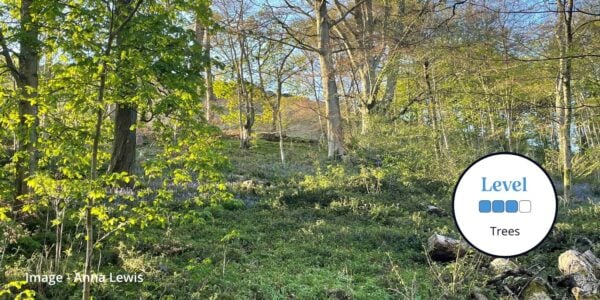
Thu 02, May 2024 10:00 - Fri 03, May 2024 17:00
The Centre is unable to offer accommodation with this course, please book local accommodation if you require overnight stays and ensure you take out the appropriate insurance.
-

Mon 13, May 2024 09:30 - Tue 14, May 2024 16:00
Please be aware that this course starts at 9:30am and finishes at 16:00pm each day. The Centre is unable to offer accommodation with this course, please book local accommodation if you require overnight stays and ensure you take out the appropriate insurance For more information about the venue and directions, visit the Low Barns Nature Reserve website.
Sorry this course is out of stock
No current dates for this course? Click here to view all the upcoming Natural History courses.
Progress Your Learning
This is a training course from the Field Studies Council, delivered by expert tutors with an approachable learning style. After attending this course, you may like to progress your learning with further relevant courses or branch out into other areas of natural history. The Field Studies Council offers both online and in-person courses, so you can choose the learning style that suits you best.
The course gives you the opportunity to immerse yourself in a new subject and acquire novel skills. Our online portal gives you time to study at your own pace and fit the lessons around your own schedule.
If you have any questions about our courses please check out our Frequently Asked Questions or email [email protected].
Group Bookings Made Easy
If you have a group of 10 or more individuals wanting to complete one of our courses, our team are available to discuss your options – from discounts to private team courses. Find out more!
You can rest assured that the absolute best content from an expert in environmental education will be at your fingertips. In choosing a Field Studies Council course, you will be joining thousands of people who learn with us each year.

